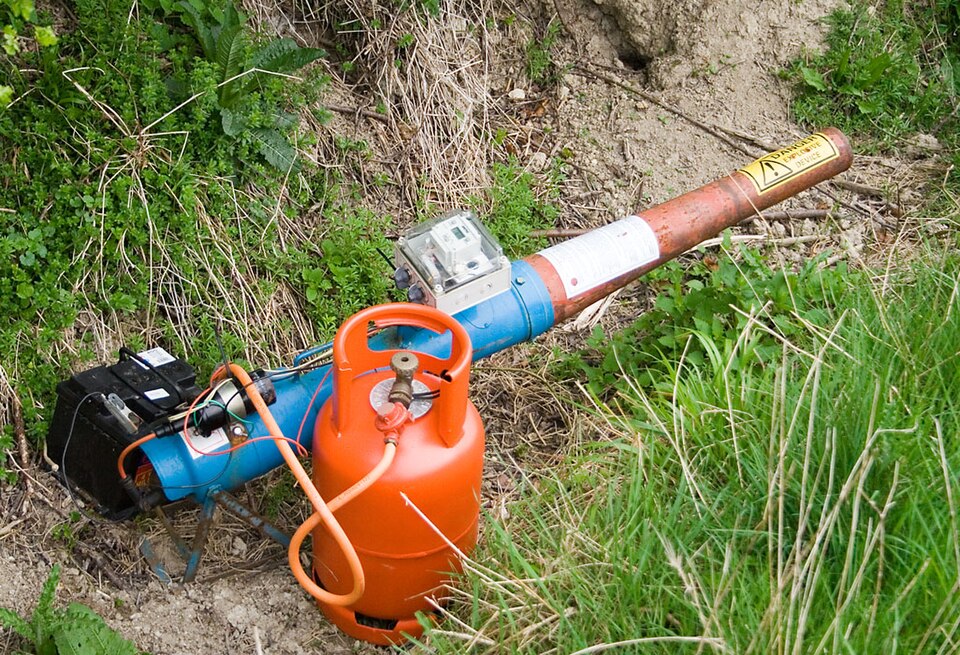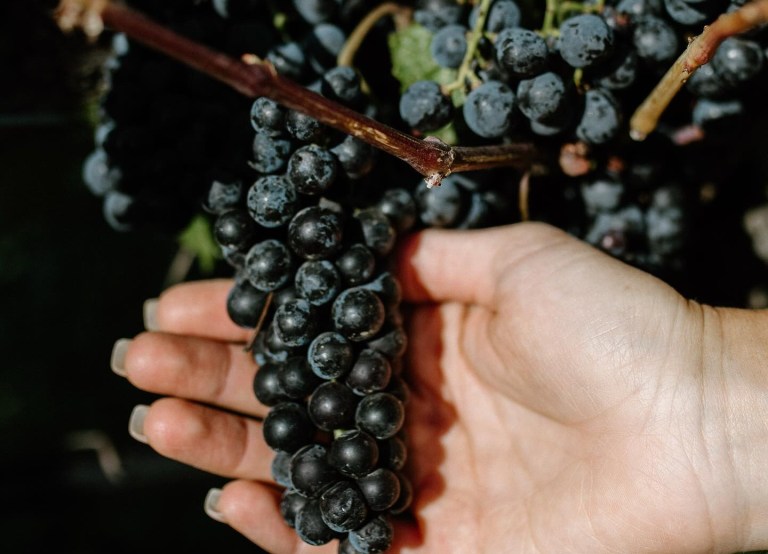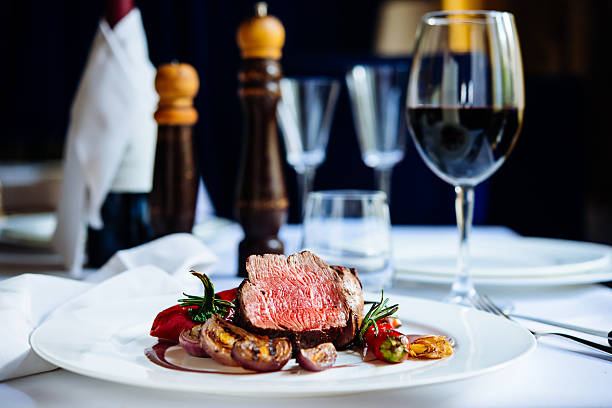

Why you can’t avoid the sound of bird cannons on Okanagan farms
Have you ever found your sunny Okanagan day was disturbed by the sound of loud bangs in the vineyard?
Homes, orchards and vineyards are weaved together throughout the region. It’s part of the Okanagan charm, but it also means residents are confronted with more than just scenic views.
It comes with agriculture, too.
In the midst of harvest season, that means bird cannons.
“If you like the farm view, then you have to hear the farm, too,” said Dapinder Gill of the BC Grape Growers’ Association.
Gill runs a vineyard in the South Okanagan and he said the sound is a crucial part of farming in the region.
“If a bird or two is eating the grapes, it’s not a big deal. You won’t even notice, but when a big flock nips at a vineyard, you’re talking thousands of birds at a time,” he said.
While some native birds like crows can be a nuisance, it’s flocks of invasive starlings that are the biggest threat.
He said the people who are surprised and potentially disturbed by the sound of bird cannons are often newer residents to the region. Long-term residents would know it’s not a gunshot in the orchard and propane-powered bird cannons are part of life near an Okanagan vineyard.
Are bird cannons the best option?
The grape growers’ association has been running a program for years to manage the Okanagan’s starling population through traps. It’s been successful, but it isn’t enough.
A single bird cannon costs around $3,500 to buy and $120 per month in propane. They’ll protect about six acres of crops.
Another option is covering crops with nets, which would cost nearly $1,500 per acre.
Some vineyards and orchards play bird noises through speakers, often with the sound of predators to deter pests who fear becoming prey. Gill said those can work, but they aren’t reliable as the pest birds soon return when they find there’s no real threat.
Based on what’s available now, Gill said farmers would rather not use bird cannons, but there’s no other way to deter birds.
“It’s the best and most effective method,” he said.
While there are guidelines for their use, there are no hard rules on bird cannons. They won’t typically be used at night and farmers try to avoid setting them off excessively, Gill said.
A newer option is on the market that wouldn’t be a nuisance for neighbourhood residents, but Canadian farmers can’t use it.
It’s a laser system that would deter birds, like invasive starlings or crows, without any noise, but Transport Canada prohibits their use. BC farmers tried and failed to get a trial run of the laser system this year.
According to Adrian Arts of the BC Fruit Growers’ Association, the federal agency “misunderstands” the system and has banned it due to perceived risk to pilots flying aircraft. A small group of Kelowna orchardists has launched an effort to allow the systems at the municipal level.
Arts suggests they should be lobbying the federal government to allow lasers so the loud bird cannons could be phased out.
“If you can’t sleep because of the bird bangers, I get how infuriating that is, but there is another option,” Arts said, who owns an apple orchard near Summerland.
Until then, he and other orchard or vineyard owners are unlikely to favour any other option.
“Yes, they’re annoying — hugely, but if I don’t do that, the starlings will come in and, in a matter of 30 minutes, they’ll wipe out my entire crop,” he said.
Join the Conversation!
Want to share your thoughts, add context, or connect with others in your community?
You must be logged in to post a comment.









